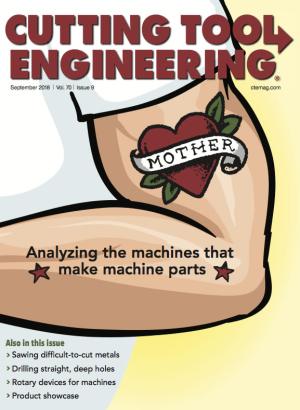I recently attended a roundtable with a local business group that meets monthly. The purpose is to gather a diverse group of businesspeople to exchange ideas, discuss workplace issues, offer recommendations and generally support the endeavors of each participant.
At the previous meeting, one member noted that, in light of a volatile market and the need to operate as inexpensively as possible, his company and many others have resorted to hiring less experienced, lower-cost employees while trimming the more experienced, higher-salaried employees. Although this technique may be necessary for some, lately we’ve been taking the opposite approach at our shop after securing new customer contracts for their critical components. We’ve been seeking candidates with skill, experience and the higher salary that goes with that skill and experience.
Upon hearing my colleague’s comments, my initial concern was I wasn’t following the logical pattern of these successful businesspeople and could be jeopardizing my shop’s profitability. When the group asked for my input, I said we had taken a different approach—seeking experienced workers worthy of a higher salary. We’ve certainly hired and had a need for younger, less experienced candidates who excelled and provided a great bang for the buck, but not to replace skilled machinists.
But does a higher payroll really cost more? Many times, the answer is no. Customers have more confidence working with experienced staff. Sure, experienced employees may command higher salaries and more benefits, but they’re usually more productive and more mature. Not to mention the boost to shop credibility when your crack staff is on the job.
This doesn’t mean that a shop should skip trimming an inflated payroll when circumstances justify cuts. We’ve had to terminate skilled employees due to personal issues that distracted them from work. Or a shop may have a highly paid, experienced employee who no longer has the mental and physical stamina to keep up. These changes happen over time and will require firm decisions to move forward.
But don’t assume that experienced, well-paid employees will cost you more money in the long run. Whatever a company saves in lower salaries and reduced benefits could be offset by lower productivity, increased training expenses and the increased potential for rejected parts.
When my roundtable meeting wrapped up, I realized I was the only member recruiting the higher-paid, experienced workers and leaving the cheap employees for someone else. A few attendees had nodded their heads as if my decision made sense, and one participant expressed his appreciation to me for having the guts to do it. I thanked him and informed him that a successful machining business requires serious skills and a high level of maturity. Also, the resulting peace of mind is priceless to a shop owner or manager. I told him that my approach to hiring wasn’t gutsy but a matter of necessity.


